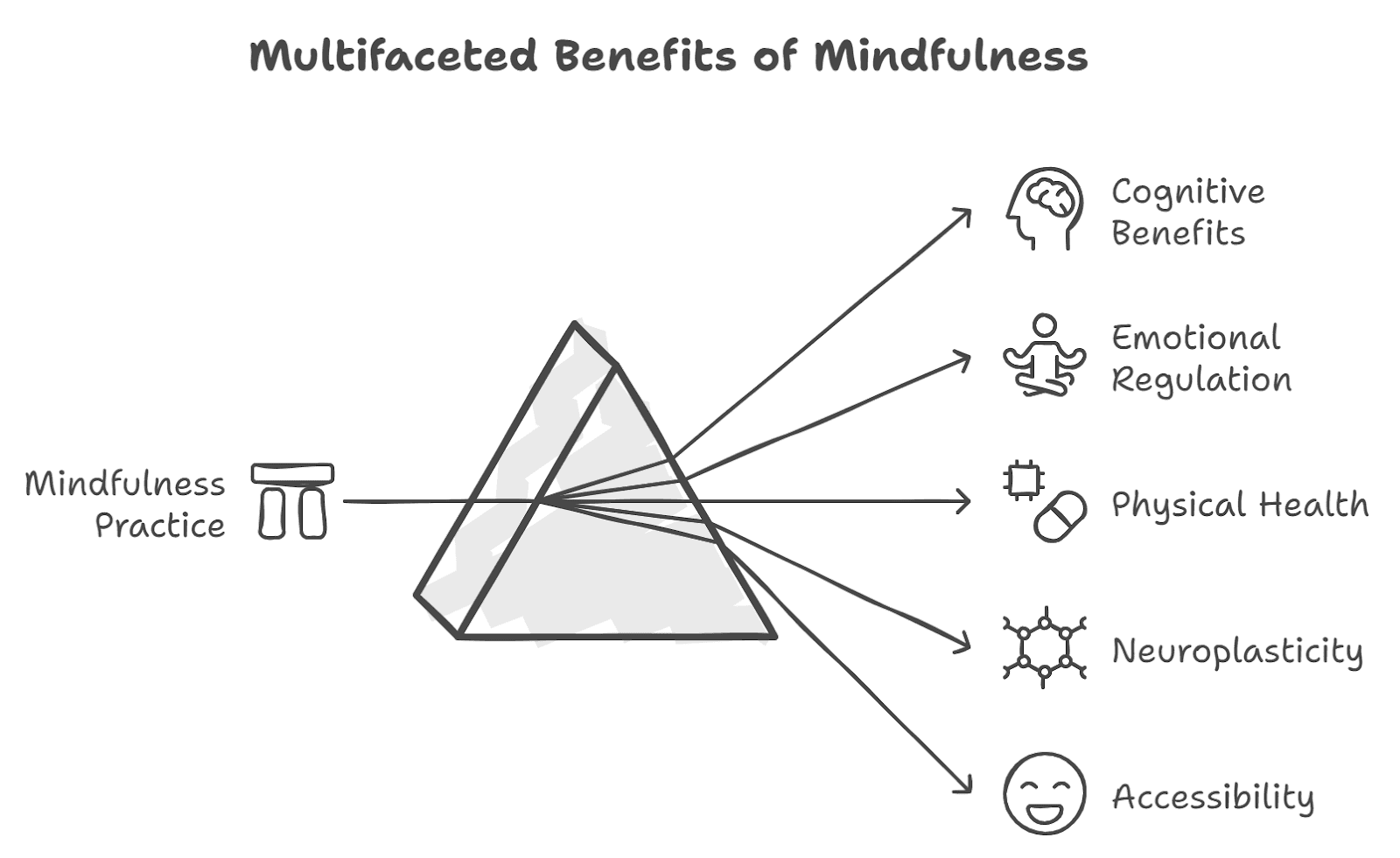The Science Behind Mindfulness: Why Your Brain Craves This Ancient Practice
By VisionAriser Team
In an era where neuroscience reigns supreme and data drives decisions, the ancient practice of mindfulness has emerged as a fascinating intersection of traditional wisdom and cutting-edge brain research. If you've ever dismissed mindfulness as mere meditation or spiritual fluff, prepare to be intrigued by what modern science has revealed about its profound impact on your brain.
Consider this: Just 10 minutes of daily mindfulness practice led to a remarkable 19.2% reduction in depression and a 12.6% decrease in anxiety across a diverse study of 1,247 adults. These aren't just feel-good statistics – they're backed by concrete neuroimaging evidence showing actual structural changes in the brain.

What happens in your brain when you practice mindfulness? Picture your brain as a highly sophisticated command center. When you engage in mindfulness, your prefrontal cortex – the area responsible for executive function – becomes more active, while your amygdala – the brain's alarm system – shows decreased activation. This isn't just theory; it's visible on brain scans. The result? Better emotional regulation, clearer thinking, and improved decision-making capacity.
But here's what makes mindfulness particularly compelling for skeptics: its effects are measurable and reproducible. Scientists have observed increased gray matter density in regions crucial for learning, memory, and emotional regulation. Your hippocampus, essential for learning and memory, actually grows larger with consistent practice. This is neuroplasticity in action – your brain physically adapting and improving its architecture.
The cognitive benefits are equally impressive. Research shows enhanced working memory capacity, improved information processing speed, and increased cognitive flexibility. For professionals and academics who pride themselves on mental acuity, these improvements translate to tangible performance benefits.
What about physical health? The mind-body connection isn't just philosophy anymore. Studies have documented improved immune function and better pain management in practitioners. The mechanism? Researchers have traced it to reduced inflammation markers and altered gene expression patterns – molecular evidence of mindfulness's impact.
Perhaps most compelling is the accessibility of these benefits. Unlike many interventions, mindfulness doesn't require expensive equipment or hours of daily practice. Those significant improvements mentioned earlier? They came from just 10 minutes a day. It's a low-cost, evidence-based tool that fits into even the busiest schedule.
For the pragmatists among us, consider this: major corporations, healthcare institutions, and academic centers are increasingly incorporating mindfulness programs. Why? Because the return on investment – in terms of improved productivity, reduced healthcare costs, and enhanced cognitive performance – is substantial and well-documented.
The science is clear: mindfulness isn't just ancient wisdom – it's a powerful tool for optimizing brain function and mental performance. Whether you're interested in enhancing cognitive performance, managing stress, or improving emotional regulation, the neuroscientific evidence supports making mindfulness part of your daily routine.
Ready to start? Begin with something simple yet powerful – mindful breathing. Sit comfortably, focus on your breath for just 10 minutes, and know that you're not just relaxing – you're actively rewiring your brain for better performance. Your brain will thank you with improved focus, better emotional regulation, and enhanced cognitive flexibility – all backed by solid science.
Remember, in a world where we optimize everything from our diets to our workouts, mindfulness represents one of the most evidence-based ways to optimize your brain's performance. Isn't it time you gave your mind the same attention you give to the rest of your health?






